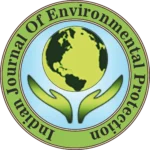IJEP 41(8): 913-917 : Vol. 41 Issue. 8 (August 2021)
Sunil Herat*
Griffith University, School of Engineering and Built Environment, Queensland, Australia
Abstract
Sound management of used electrical and electronic equipment (EEE), known as e-waste, is generated at a higher rate than most other waste streams in many countries. According to the United Nations, the world produced 53 million metric tonnes (Mt) of e-waste in 2019, mostly from the Asian region. E-waste contains many toxic compounds, poorly managed could cause severe environmental and human health issues. E-waste also contains valuable metals for resource recovery. Environmentally sound management (ESM) of e-waste is inadequate in many developing countries due to a lack of financial resources, infrastructure and the informal recycling sector’s dominance. Many countries have been developing regulations based on extended producer responsibility (EPR) concepts. This paper aims to review the business and economic potential of e-waste resource recovery in the Asia Pacific countries.
Keywords
E-waste, Asia Pacific, Recycling, Resource recovery, Extended producer responsibility, Public-private partnerships
References
- Forti, V., et al. 2020. The global e-waste monitor 2020: Quantities, flows and the circular economy potential. United Nations University/United Nations Institute for Training and Research (UNITAR) – co-hosted SCYCLE Programme. International Telecommunication Union (ITU) and International Solid Waste Association (ISWA).
- Parajuly, K., et al. 2019. Future e-waste scenarios. StEP (Bonn), UNU ViE-SCYCLE (Bonn) and UNEP IETC (Osaka).
- Masud, M.H., et al. 2019. Towards the effective e-waste management in Bangladesh: A review. Env. Sci. Poll. Res., 26(2): 1250-1276.
- Mahmud, I., et al. 2020. E-waste recycling intention paradigm of small and medium electronics store managers in Bangladesh: An S–O–R perspective. Waste Manage. Res. DOI: 10.1177/0734242X209 14753.
- Xavier, L.H., et al. 2019. Sustainability and the circular economy: A theoretical approach focused on e-waste urban mining. Resour. Policy. DOI: 10.1016/j.resourpol.2019.101467.
- Azad, A.K., et al. 2017. Generation of electronic waste and its impact on environment and public health in Malaysia. Ann. Trop. Med. Public Health. 10(5): 1123-1127.
- Yong, Y.S., Y.A. Lim and I.M.S.K. Ilankoon. 2019. An analysis of electronic waste management strategies and recycling operations in Malaysia: Challenges and future prospects. J. Clean. Prod., 224: 151-166.
- Iqbal, M., et al. 2015. Emerging issue of e-waste in Pakistan: A review of status, research needs and data gaps. Env. Poll., 207(8132): 308-318.
- Shaikh, S., K. Thomas and S. Zuhair. 2020. An exploratory study of e-waste creation and disposal: Upstream considerations. Resour. Conser. Recycl., 155. DOI: 10.1016/j.resconrec.2019.104662.
- Hai, H.T., H.V. Hung and N.D. Quang. 2017. An overview of electronic waste recycling in Vietnam. J. Mater. Cycles. Waste Manage., 19(1): 536-544.
